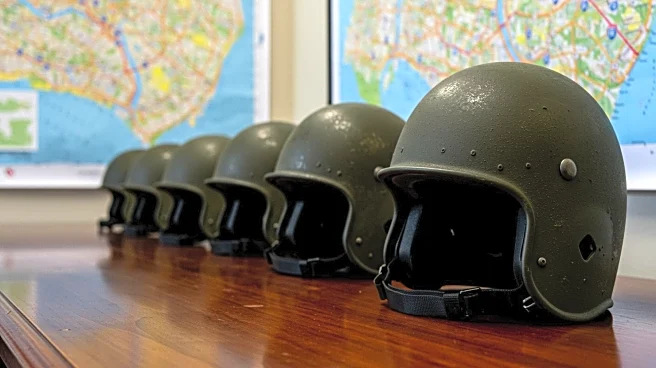What's Happening?
President Trump has announced the deployment of National Guard troops to Washington, D.C., citing the city as one of the most dangerous in the world. This move includes a public safety emergency declaration and the appointment of Attorney General Pam Bondi to take command of the Metropolitan Police Department. The deployment involves 100 to 200 troops supporting law enforcement, although the National Guard lacks arresting powers. Trump's decision has been met with skepticism from police and military experts, who argue that crime rates are at historic lows and question the effectiveness of federal intervention in local crime issues. The deployment follows recent violent incidents in D.C., including a fatal shooting and an attempted carjacking.
Why It's Important?
The deployment of National Guard troops to D.C. represents a significant federal intervention in local law enforcement, raising questions about the balance of power between federal and local authorities. Critics argue that the move is more of a political gesture than a practical solution to crime, potentially undermining local governance and law enforcement autonomy. The decision could set a precedent for federal involvement in local policing, impacting public policy and civil liberties. Additionally, the confusion among law enforcement agencies regarding roles and responsibilities may hinder effective crime prevention and response.
What's Next?
President Trump is required to notify certain members of Congress within 48 hours about the reasons for taking control of the police and the timeline for federal control. The control cannot exceed 30 days without congressional authorization. The situation may lead to legal challenges or political debates over the appropriateness and legality of federal intervention in local policing. Stakeholders, including local government officials and civil rights groups, may push back against the decision, advocating for the restoration of local control and accountability.
Beyond the Headlines
The deployment raises ethical and legal questions about the use of federal power in local matters, potentially affecting the relationship between federal and local governments. It may also influence public perception of safety and governance in D.C., impacting tourism and local businesses. Long-term implications could include changes in policy regarding federal intervention in local law enforcement and the role of the National Guard in domestic affairs.










